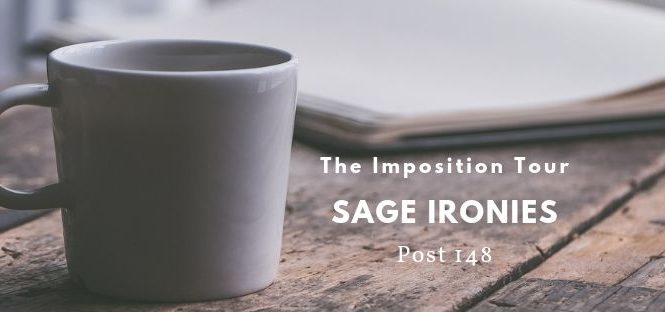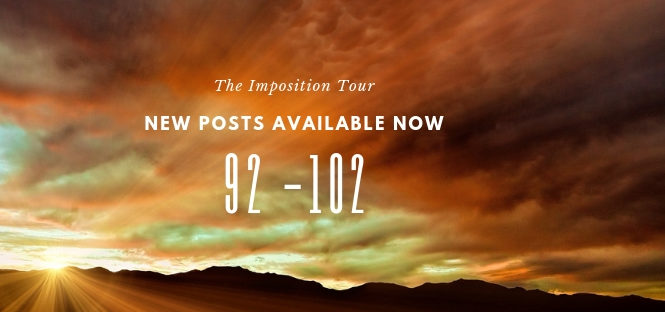I stayed with my dad for the first three weeks after my mom passed away in 2000.
Everything about her death happened very fast, but in the little time she had, she mercifully prepared all of us for specific things that she knew we’d each face once she was gone. One of those things was how she told us my dad’s grieving would take shape.
She said that my dad wasn’t good at being alone, and, he’d need a lot of help to get through the worst of the pain. She said my dad was still young, and he’d find someone else to share his life with very quickly — which he did — but it would be incredibly painful for my dad to start the process of moving on because she and my dad had been married for so long…
My mom was absolutely correct about everything she told us. She made her death graceful and spiritual in every way. But it’s the memories of those weeks alone with my dad that taught me the two most significant lessons I have in me about what marriage really is.
Watching my dad try to become whole when his wife was no longer by his side gave me layers of important insight into what it takes to be a helpmate — and what I discovered is, it’s not just loving or finding a singular sense of completeness in your spouse.
A marriage deepens and forms itself around the little things.
My dad’s grief made me realize that marriage is a constant decision you make over and over again to remain steadfastly alongside another flawed and complicated human being — who can sometimes drive you crazy, but who also has the ability to see all of the good in you, and most of the bad, but stays with you just the same.
Anyway, the first layer of my understanding about marriage started with a coffee pot; and the second one came from a stack of mail on the counter.
…
I remember coming downstairs to the kitchen early one morning during my first week with my dad. He was just standing there in front of the coffee maker. He had his body braced in front of the empty coffee pot with both hands pressed into the countertop. His favorite little coffee mug was centered between his hands. As I drew closer and leaned in to look at his face, I realized that my dad was crying.
I had only recently seen this teary side of my dad for the first time, but to see him crying while looking at the coffee maker didn’t make sense. But I didn’t even have to ask him what was wrong; he volunteered an explanation as soon as I placed my hand on top of one of his.
“Every morning, I always get up before your mom, and I come downstairs to read my Bible,” he said in a thick voice. “I always come in here, and I flick the button on the side of the coffee maker. A few minutes later, the coffee comes out. Your mom always sets it up that way so I’ll have my coffee… But not anymore.”
That bewildering loss seemed to take my dad to a new level of grief. And even though I knew my dad could make a pot of coffee — and, I while I was staying with him, I could even do it the night before like my mom always did — it was this little thing that my mom did every day that was always going to cause my dad a moment of early morning sadness for a long time to come.
It was this small ritual in their lives together that would never happen the same way again that would repeatedly cause my dad to miss my mom.
…
After I made us some coffee, I joined my dad in his sitting room. He’d built a fire in his wood-burning stove, and he seemed ready to talk. My dad shared so many things about my mom with me that I never knew. Seeing her as his wife — and not just as my mother — made me admire her differently.
I remember how much my dad rambled that morning, but then he said something really insightful that I will never forget. I probably won’t be able to directly quote my dad because after he said it, I took his words into my heart, and I made the observation my own… But here’s how this exchange with my dad remains in my memory:
…
My mom was a very tidy person, but she was a stacker.
She liked to leave things out in the open in neat and orderly stacks. There were stacks of paperwork and mail on the kitchen counter; stacks of books by her bed — and, at both ends of the sofa; she had stacks of journals and magazines on the back of the toilet; and, she had stacks of sheet music on the piano bench at all times. As a kid, whenever I would clean the house for my mom, I’d come up with careful hiding places for all of my mom’s stacks — because, to me, that just looked so much cleaner.
So when my mom would come home, she’d always say, “Ahhh. Everything looks so clean, Sonja. But where did you hide all of my stacks?”
As my dad was emoting his feelings about my mom that day, the topic of my mom’s stacks came into the conversation. I think I asked my dad where some insurance paperwork we’d need was kept, and he said, “Check the stack by the phone. Or maybe the one she left on the coffee table.”
We both giggled at first, but then my dad surprised me by saying how much my mom’s stacks got on his nerves. They were everywhere, and he could never find anything without asking my mom. She’d be able to tell him which stack, and how far down the stack a needed item would be — but without knowing her personalized Dewy Decimal System, my dad could never find anything on his own.
I remember bringing the stack by the phone over to the seating area to start combing through the paperwork, and suddenly, my dad was crying again. His tears seemed really random, but grief is like that, I’ve discovered. So I handed my dad a tissue, and once he wiped his eyes, he started explaining. He said that out of everything he knew he was going to miss about my mom, he was probably going to miss my mom’s stacks the most in his life. When I asked why he said:
“Because I spent so much time in my marriage thinking about how annoying her stacks of mail and little piles were!”
He had fixated on that one silly and negative habit far too often, and the irony was, it would likely be the single thing that made him miss my mom the most.
For my dad, there would be no more stacks to notice because his wife… Well. She was gone. And, she was never coming back.
…
I wasn’t married when my mom died, but I took my dad’s words into my heart. The first time they came back to me was a few years into my own marriage when I found myself feeling annoyed about one of Lou’s many little habits that bugged me.
His tendency to drop his clothes near — but never in — the laundry basket; how he flicks toothpaste specs on the mirror every time he brushes his teeth; how he takes off his giant shoes, and then leaves them in the middle of the room for me to trip over… These things always irritate me, and there are times when I feel positively pissed that Lou can’t do things the way I like them to be done.
But. The fact is each annoying thing he does has a place in my life because they only happen because Lou is still in it.
By the time I was preparing to leave for England with Vanessa, I was loaded to the gills with irritations, confusion, and disappointments about how Lou did things, and how dark and gloomy our marriage had become — and I wanted a break from it all. But there was this little voice inside of me that kept telling me to use the time apart to count the cost of losing someone I love as much as I knew I loved Lou.
I could’ve easily lost Lou the way my dad lost my mom after all of his health scares, but I didn’t. And at that time, I seemed to be losing sight of how lucky I was to have him at all. So the voice inside of me told me to remember the beauty of my simple and mundane rituals with my husband and to really feel the vacancy in my life when Lou wasn’t with me.
The voice said to bravely confront the idea of the emptiness of a life without the living, breathing Lou — including a life without all of his annoying ways. I needed to take a sober look at what it means to make that continuous and daily decision to stay the course in my marriage, and, to recognize the perfection in our collective imperfections.
But for me, that kind of sobriety was still very blurred with confusion and resentment that had built up over a long time. So the life lessons I took from my parent’s marriage only served as a counterbalance that my dad somehow provided to help me fully measure the weight and value of my life with Lou, while I took the time I’d need to consider the quality of the life I would have if Lou wasn’t in it.
For me, it’s easy to build a case against a person and to make a list all of the ways they don’t measure up to my standards. I’m good at that in my heart, unfortunately.
And at that time, it had started to become easy for me to find grounds for ending my marriage because Lou wasn’t making me “happy” anymore. I had already started to realize that the long-standing sense of purpose in my marriage often rallied around how I tried to cope (in the early days) with Lou’s ideas about how to center his sons inside our of our marriage, or, how we should survive the realities of our financial ruin.
But just below those layers of understanding, I started to acknowledge how willingly I had given up on my own writing to make sure that Lou had the words we both thought he needed to be successful — even though every time I did that, I felt cheated and wronged.
As awful as these discoveries made me feel, I realized that I was the one who created most of the co-dependency inside of our relationship. It was me who painted myself into a corner that left me feeling trapped and resentful.
Not Lou.
I was the one who spent the majority of our marriage hiding behind Lou because I feared I wasn’t good enough or valid enough to be who I suspected God made me to be. I threw away chunks of my potential in favor of “supporting Lou,” even though initially, Lou never asked me to do that. And, somewhere along the way, I had started to believe that the only option I had to make sure Lou and I survived was for me to totally abandon my desires for myself, and to become one thing and one thing only: Lou’s helpmate.
But when everything broke apart inside of me…I suddenly realized that I didn’t want to live inside of that of particular option anymore.
After all that we’d been through, I finally knew without question that I didn’t want to find my only sense of purpose exclusively in my marriage, and in what I could do or be for Lou… But, I realized that I didn’t know how to change things for myself without ruining my role as a helpmate.
Helpmate. Erg.
That’s what I was, and what I felt certain I was supposed to be because I made a vow. But that word seemed so limiting to me at the time. I honestly couldn’t picture my life with Lou, and the life I wanted to have for myself coming together. The two sides of me seemed to be mutually exclusive personas, and it broke my heart to think that I’d have to choose one part of myself over the other. A choice like that felt like I would have to kill one thing I loved in my heart so the other thing I loved could survive.
Back then, I couldn’t see things any other way…
So I decided I had to mix up my life in a healthy way to find out if my thoughts were true. Thankfully I knew that I wasn’t willing to barter my marriage to chase after some shapeless idea of who I needed to become — rather, I wanted to risk more in my heart to find something truthful and clear about who I’m meant to be, and what I’m created to do.
I wanted to find a peaceful place in my life that still belonged to me, but that existed between the comfortable rituals I had created with my husband and the list of annoyances we were both willing to tolerate in each other because we were committed to our marriage. I didn’t want to wake up one day without Lou and realize that if I had just tried one more thing, then maybe we could’ve made it work.




